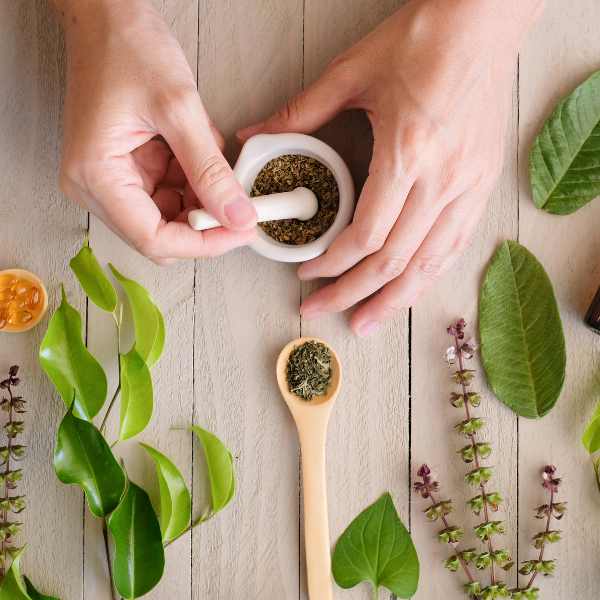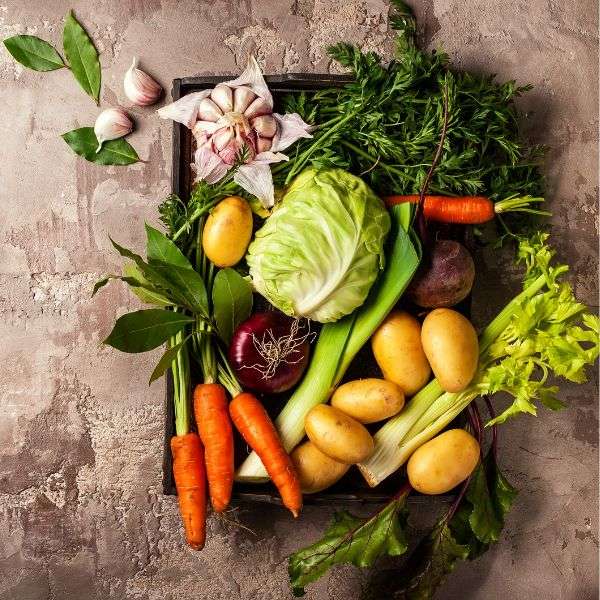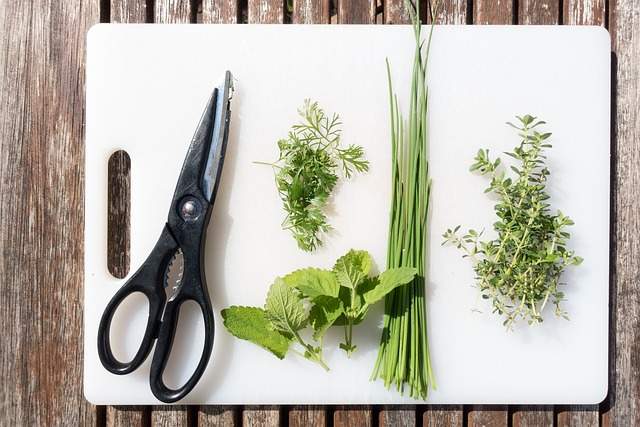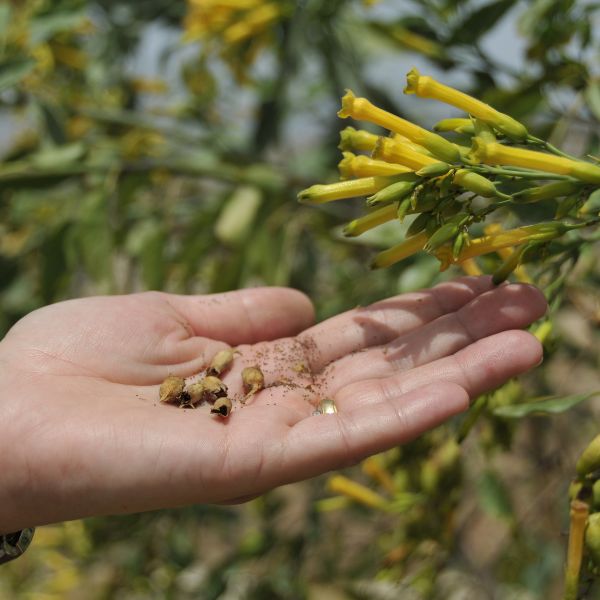Medicinal Herbs

Herbs make wonderful additions to your garden thanks to their versatile uses. Not only are they beautiful in the garden, they offer many health and healing benefits. The leaves, flower, fruit or roots may be harvested and harnessed for their medicinal qualities.
There are many culinary herbs that are also medicinal in nature. These are some of the most useful to grow because you’ll likely have many uses for them, both to cook with, and to treat symptoms.
Herbs can be made into a herbal tea, or applied externally to the skin as a salve.
How To Make A Herbal Tea
Herbal Teas are the easiest ways to use your herbs. All you need is a kettle and a strainer.
- Use two to three teaspoonfuls of fresh or dried herbs to one cup of water
- Bring the water to a boil and allow the herbs to steep for 10 to 15 minutes
- Strain the herbs out of the tea before serving.
- A drop of honey can make more bitter teas more palatable
Herbal Salves
The first step to making a salve is by infusing an oil with your herbs. Most any oil will work, and generally, the choice is determined by personal preference. Olive oil makes a good all-purpose healing salve, and almond oil is especially nourishing to the skin, assuming no nut allergies.
Start by filling a small mason jar about 2/3rds full with dried herbs. Dried herbs are better as they wont go off in the oil. You can dry your herbs in a dehydrator or paper bag.
Allow the herbs to slowly infuse into the oil for 3 to 6 weeks before straining. You can use the oil as is, or go a further step to make it more solid by adding beeswax. You will need 1 part wax to 4 parts oil.
Place the herb infused oil into a heatproof bowl. Add about 3 cm of water to a small saucepan, and then place the bowl on top of the pot to make a simple double boiler. This allows you to gently heat the oil over the heat of the water below.
Once the wax is melted, remove the bowl from the heat and pour it into a suitable container such as small tin or glass jar.
There are many websites online where you can buy beeswax. You often have the choice between white and yellow wax and white is the better option as it usually has a higher level of purity.
Useful Herbs
Yarrow
Yarrow is one of those special herbs that can offer healing for an incredibly wide variety of common ailments. It is an antimicrobial, which means it can help heal wounds: preventing infection and speed up tissue repair.
The tea can also help soothe a sore throat and strengthen the cardiovascular system.
Medicinal Uses
- Stops bleeding
- Flu
- Reduce fever
Peppermint
Peppermint is wonderful for upset stomachs and can even help with motion sickness. It’s a very cooling herb and wonderful made into an herbal tea or tincture.
Medicinal Uses
- Stomach issues
- Sinus issues
- Cooling
- Headaches
- Motion/morning sickness
Calendula
Calendula is well known for its soothing properties. You’ll often find calendula in herbal salves, body washes and even shampoos.
Medicinal Uses
- Skin issues
- Rash
- Wounds
- Anti-fungal
- Lymph stimulant
Lemon Balm
Lemon Balm is a light and gentle herb, so it’s a great one for children.
If you’re feeling stressed, simply going out to the garden and crushing some of the leaves in your hand, then inhaling the aroma can help soothe frayed nerves.
Medicinal Uses
- Reduces fevers
- Colds/flu
- Cough
- Calms nerves/stress
- Promotes sleep
- Upset Stomach
Holy Basil
Holy Basil is is great for energy. It helps during stressful times and helps regulate the stress response.
it is used in Ayurvedic medicine, a traditional system of Indian medicine, and Hindus believe its presence deepens meditation, purifies and protects.
There are two types of Holy Basil, Green and Red.
Medicinal Uses
- Promotes energy
- Regulates stress response
- Helps with focus and is very grounding
- Anti-bacterial
Echinacea
Probably one of the better-known herbs, Echinacea is great to use when building up your immune system.
This plant is best harvested the second year so it has time to spread. You can use different parts of the plant, but the roots are the most powerful.
Medicinal Uses
- Immune-stimulant
- Anti-infection
- Sore throat
Sage
Sage is a lovely culinary herb and is also wonderful for a wide variety of ailments. Perhaps one of the best medicinal benefits is its oral uses. If you have a toothache, a cold sore or a sore throat, you can pick a few leaves and chew them up, then place them near the affected area.
Generally, you just use the leaves of sage.
Medicinal Uses
- Mouth/Throat issues (cold sore, sore throat, tooth ache)
- Tooth whitening
- Correcting menopause issues
- Enhances brain function
Oregano
Besides being delicious in pasta and on pizzas, Oregano is a powerful herb.
It’s anti-microbial so it will help fight against viruses, fungi, and bacteria and it’s also extremely high in antioxidants.
Medicinal Uses
- Anti-viral
- Anti-fungal
- High in antioxidants
- Cold/flu
Chamomile
Probably the most recognized use for Chamomile is as a tea to promote sleep. It has a wonderful sweet flavour and is great to drink before bedtime.
It’s also wonderful for an upset stomach and gas pain.
Medicinal Uses
- Upset stomach
- Gas
- Promotes sleep
- Promotes calm
- Eye issues
- Fever reducer
Dill
Dill is wonderful for pickling and amazing with egg and fish dishes. Medicinally the seeds are fantastic to help eliminate gas and/or bloating, just take a few seeds and chew them up.
Medicinal Uses
- Upset stomach
- Helps depression
- Menstrual pain
Burdock
Then young roots of Burdock can be eaten raw and the older roots are usually cooked. The young leaves and stalks are eaten raw or cooked.
Medicinal Uses
- Skin Complaints
- Gout





